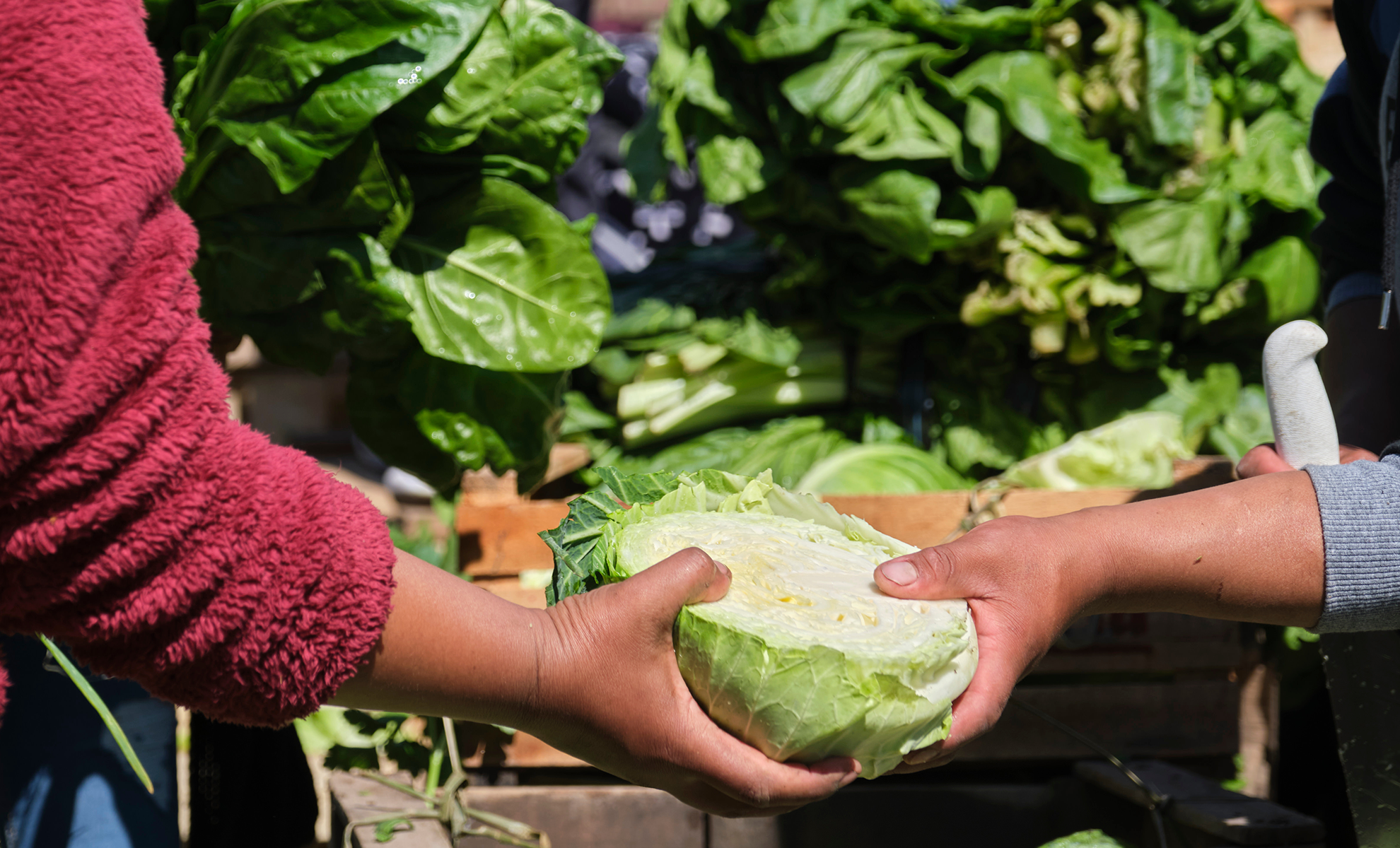




Andre Degenszajn addresses current issues in the debate surrounding ultra-processed food
In discussing the climate impacts of food systems, meat production and consumption has been a central topic of discussion. This is a rapidly growing sector that demands increasingly more natural resources. The social and environmental impacts generated by beef production involve deforestation for grazing—the area dedicated to raising cattle in Brazil is 2.5 times larger than all the crop areas—increased intensive production of grains for animal feed, pollution of water resources, and greenhouse-gas emissions. Brazil is one of the largest meat producers in the world, and even though it is also the largest exporter, it consumes a good part of what is produced: the internal market for beef is almost four times larger than the external market, and only about 20% is exported to other countries.
Given these challenges, the meat industry has adapted by creating alternatives such as “plant-based meat,” presented as a healthy and sustainable solution. Even if it can be seen as an alternative for the environment by reducing the impact of meat production, it presents other serious issues, such as the fact that it is still a highly processed food with an effect on health, such as the worsening of non-transmissible chronic diseases.
Through seductive marketing and messaging about the future and hope, the plant-based meat industry is spreading and is projected to proliferate in the coming years.
In an interview with Ibirapitanga, researcher Marina Yamaoka reflects on the challenges of broadening the debate around healthy, fair, and resilient food systems in a scenario where the industry spares no effort to manipulate formulas, expand the supply of highly processed products, and dispute narratives through strategically designed campaigns that attribute the country’s food progress to the food industry and agribusiness.
Marina Yamaoka is a journalist with a Master’s in International Development focused on public policy and food supply systems from the Paris Institute of Political Studies and a PhD student in Political Science. Marina acts as coordinator of the Brazilian branch of the Institut des Amériques, promoting transdisciplinary scientific projects between French and Brazilian universities and researchers. In Brazil, she has been contributing to strengthening initiatives supported by the Ibirapitanga Institute, which is central to the development of Food Systems.
She works as a researcher and communications coordinator at Cátedra Josué de Castro, a space dedicated to producing interdisciplinary, multidimensional knowledge shared with various players to discuss the transformations in Brazil’s food systems. She worked as an executive producer at O Joio e o Trigo, an investigative journalism initiative focused on industrialized food’s political, social, economic, and environmental implications, and as a journalist and consultant for the Bori Agency, which brings science closer to the population through popular science.
Instituto Ibirapitanga: In a recent article that you co-authored, “Convergence of the ‘protein’ industry and its implications for resilient and equitable food systems,” you present reflections on the widening power asymmetries and weaknesses of the industrial food production and commercialization model. What are the possible correlations between the harmful practices of this model and the humanitarian, health, and climate crises?
Marina Yamaoka: The article analyzes the recent trend of convergence in the protein-rich food industry, for example, meat processing companies expanding their portfolio by acquiring companies that produce plant-based alternatives to animal products—such as plant-based burgers—or even startups seeking to produce cultured meat. These M&A moves are not unique to companies that produce, process, and market meat; just look at the case of the mega-mergers that happened in 2015 in the seed, pesticide, and fertilizer industries. However, what is interesting in the analysis of the article is how the industry is coordinated around a macronutrient and how it uses reductionist marketing strategies precisely to promote more and more protein consumption. One example is the American company Tyson, which positions itself as a company that sells “more than chicken” and defines itself as a “protein leader.” The article shows that the convergence of the industry and the resulting concentration of power in a few companies can, among other things, reduce the genetic diversity of animals and crops. Consolidating the “protein industry” tends to promote the industrial agri-food model based on monocultures of a few types of grains and the industrial production of animals with similar genetic traits. The emphasis on genetically uniform varieties can lead to lower resilience of food systems and greater susceptibility to parasites and disease. In addition, industrial animal agriculture contributes to the climate crisis by producing grain to feed the animals or by the gases emitted in their digestive process.
Ibirapitanga Institute: There is a growing debate about the controversy of “plant-based” products as alternatives to solve critical consequences of food systems. The cited article contributes to this discussion with a focus on the industrial capture of this narrative. Can you give us an overview of the main points of these contributions?
Marina Yamaoka: The new “plant-based” products are positioned not only as an alternative to meat consumption but as solutions to the environmental and human health impacts that current livestock production causes. The convergence of the protein industry may sound contradictory at first because companies seen as traditional in the industry are also expanding and investing in “alternatives” to their products. JBS, which processes beef, pork, and chicken, chose to invest in other types of proteins and entered the plant-based meat market in 2020 through the American brand called OZO. In April this year, JBS bought Europe’s third-largest producer of “plant-based” items.
Apparently, the food industry promotes the alternatives as solutions to severe problems, which are absorbed by the new “protein industry.” This indicates that these products will not necessarily disrupt and transform food systems; they do not represent significant competition to the traditional industry. Moreover, they help to strengthen the protein industry, further accentuating the asymmetrical power that, as we’ve seen before, can hurt the environment.
Including “plant-based” products within the category of ‘protein’ contributes to strengthening the nutritional reductionism to just one macronutrient and helps divert attention from the high degree of processing in many of these products.
Ibirapitanga Institute: Please tell us about the main recommendations the article puts forward for a transition to sustainable, healthy, and fair food systems.
Marina Yamaoka: One of the main recommendations of the article is the need to define competitive practices between companies and to expand the scope of antitrust regulation precisely to avoid the concentration of power in the hands of a few players in the food industry. Again, this case is not unique to the protein industry; the same is true for M&A in the seed industry, and agrochemicals, among others. Moreover, transitioning to sustainable, healthy, and fair food systems means seeking solutions to power asymmetries, which could be achieved by strengthening food sovereignty. Another important aspect is to increase crop and animal diversity through incentives for agroecological practices, which help make food systems more resilient. Finally, the article points to the need to study in more depth other dimensions and effects of the convergence of the protein industry, such as the impact of marketing used to homogenize food crops or to increase the consumption of nutrient-poor and ultra-processed products.
Ibirapitanga Institute: Regarding your experience in communication about food systems, what are the biggest challenges today?
Marina Yamaoka: Food systems are complex, and their relationships go beyond the production chain and touch on different dimensions, such as economics, development, culture, environment, and human health.
The biggest challenge is for the communication to establish a systemic approach to the subject without isolating broad contextual phenomena or failing to relate them to the different dimensions with which food systems interact. A recent example is an increase in the price of rice and beans and how some media outlets covered the issue. Most of them related the high costs to the devaluation of the real against the dollar. Still, they failed to mention other important aspects such as the poor harvest of grains in other countries – which is fundamental in a globalized food system—the lack of a strategic domestic stock, among others.
The same need for a systemic approach applies to the consequences of inflation in the impacts of high rice and bean prices on Brazilians’ food culture, for example. Another challenge for communicators who cover food systems is the private funding of research by industry, which is not always exposed in articles or other scientific materials, making it difficult to know whether a study is biased or not, and this creates obstacles to communication that is genuinely based on scientific evidence and free of private interests.
Ibirapitanga Institute: In your journey, what examples would you share of adaptations, findings, and new paths in communication about food systems?
Marina Yamaoka: The first is the podcast Prato Cheio by O Joio e O Trigo, in which I was the executive producer. One of the team’s concerns is precisely to be able to address a specific subject with the complexity of a systemic approach, bringing as much information as possible about politics, economics, culture, environment, health, and conflicts of interest on the part of the industry. I think one of the essential findings we had in maintaining this systemic approach was that we didn’t take an explanatory or pedantic tone, no matter how complex an issue was, opting instead to hone in on human stories that were given space in the scripts. Pardon the pun, but I think this approach gives the stories a lot more flavor; they become good stories, something people read, listen to, feel connected to, and feel more impelled to share, even if the subject, like food in Brazilian prisons, is not necessarily light. For example, this episode [O prato do preso] (The Prisoner’s Dish) won the 43rd Vladimir Herzog Award. The second experience is with the Josué de Castro Chair, mainly considering our partnership with the journalistic-academic platform Nexo Políticas Públicas. Having space in a media outlet allows us to communicate critical academic topics in different formats in accessible language, which helps to disseminate scientific evidence on food systems, not only in the educational environment, but also to broader audience.
Ibirapitanga Institute: What possible contributions should communication still make to developing healthy and sustainable food systems?
Marina Yamaoka: One important point I didn’t mention when discussing the challenges is the need for a cohesive and well-articulated narrative for developing healthy, sustainable, and fair food systems. Even last year, the UN Food and Agriculture Organization published a report called “Food Security and Nutrition—Building a Global Narrative for 2030.” In this study, the organization updates the concept of food and nutrition security and points to an urgent need to establish a global narrative on the subject, which allows for strengthening the idea and adopting an analytical and policy framework for food systems. I believe that communication can contribute to the construction of this narrative, which I wouldn’t say is necessarily global, but at least to counter the fierce dispute of records in Brazil. Agribusiness uses strong, simple vital messages that do not connect to the systemic approach. Phrases like ‘Brazilian agribusiness feeds the world’ or ‘agribusiness is the most dynamic sector’ have become very well-known and need to be deconstructed through more profound analysis. Fortunately, we have journalists and researchers working on this. We also need strong narratives to promote the defense of healthy and sustainable food systems, which can efficiently and effectively deliver the key messages of transformation without abandoning the subject’s complexity.
Ibirapitanga Institute: Can you share a reference on food systems that influenced you in this field?
Marina Yamaoka: During my master’s degree, I had the opportunity to attend a lecture by Vandana Shiva, who impressed me a lot because of her ability to, in a few sentences and in a single answer, talk about economic inequalities, gender issues, protecting the environment, and the need to preserve native seeds. Each answer she gave tied together very well the different ends of the food systems, which is why I recommend the book Who Really Feeds the World? The Failures of Agribusiness, in which she points out the failures of the industrial agrifood system and suggests agroecological solutions for transforming food systems. Another recent reference that stands out is the documentary Chão by Camila Freitas, which takes a stern yet sensitive look at the struggle for land and Popular Agrarian Reform.
Andre Degenszajn addresses current issues in the debate surrounding ultra-processed food















